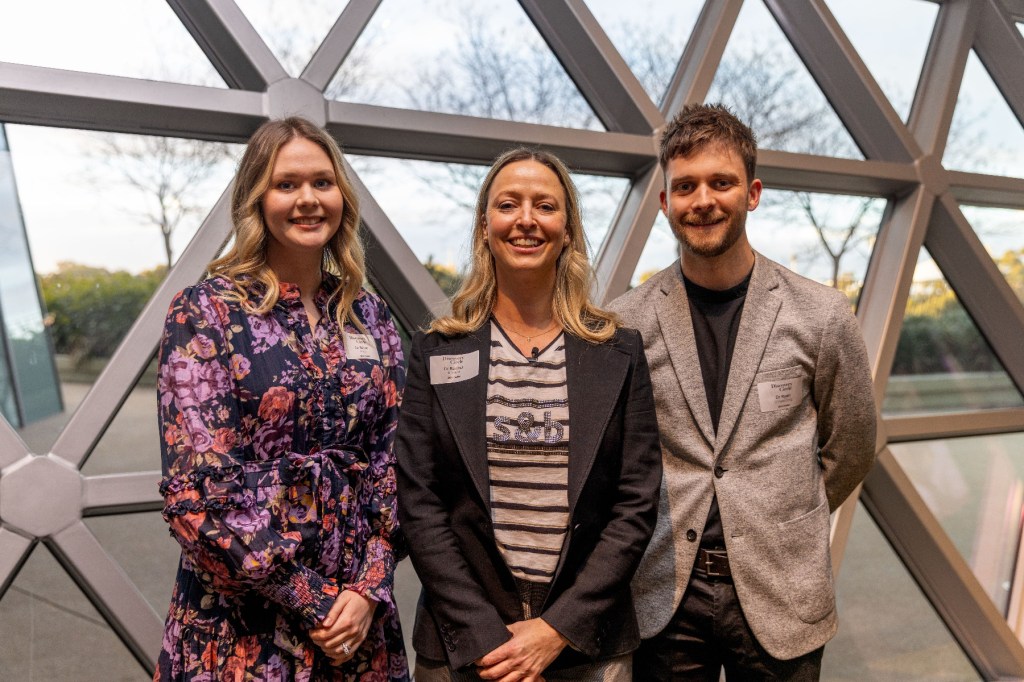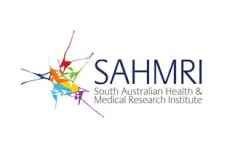SAHMRI’s Discovery Circle: Giving donors a front-row seat to medical breakthroughs
Early-career researchers are working on medical breakthroughs thanks to donations raised through the Discovery Circle at the South Australian Health and Medical Research Institute.

For those passionate about making a real difference in medical research, the Discovery Circle at the South Australian Health and Medical Research Institute (SAHMRI) offers a unique opportunity. Launched just last year, the initiative invites donors to support early and mid-career researchers while connecting them directly to the impact of their contributions.
“The Discovery Circle came about because we wanted to bring donors closer to the research and give them some sense of agency and ownership,” says Alex Bassett, philanthropy manager at SAHMRI.
“Donors contribute $5000 a year to support early and mid-career researchers, and then they get invited to an annual event where they hear from three shortlisted researchers before voting on which one receives those cumulative funds.”
For early-career researchers, this support is transformative. “It’s huge for these early researchers, because it’s such a critical time in their careers,” Alex says.
“There’s an incredibly low success rate for securing grant funding. The Discovery Circle Award is a great opportunity for our researchers to fund a whole year of research. It’s very significant.”
The Discovery Circle is more than just a financial contribution; it’s a journey. Donors meet the winning researcher at the annual event and continue to follow their progress throughout the year. In 2024 the inaugural winner was Dr Elyse Page.
“The Discovery Circle members have received regular updates from Elyse and met her at a number of events, so they’ve come to know her and seen first-hand what their funding has achieved,” Alex says.
You might like
The latest Discovery Circle event was held on October 20, with each researcher having an eight-minute window to pitch their project. The presentations showcased the incredible diversity of SAHMRI’s research, highlighting everything from cutting-edge leukaemia studies to broader biomedical advancements.

For Dr Page, the funding has been life-changing. Her research focuses on acute lymphoblastic leukaemia (ALL), a cancer that primarily affects children.
“With the Discovery Circle project, I wanted to essentially predict which of these patients were going to develop CNS+ leukaemia by identifying a blood-based biomarker and find a way for clinicians to treat them better with less toxicity,” she says.
Her team, the National Referral Centre for ALL samples in Australia, noticed that patients with central nervous system involvement often had suboptimal outcomes. “I wanted to essentially predict which of these patients were going to develop that and try to treat them better with less toxicity,” Dr Page explains.
Winning the Discovery Circle award was a moment of both surprise and gratitude. “I was pretty shocked to win, to be honest, because the other two did amazing talks as well,” she said.
“I was really honoured, feeling very grateful because funding is hard to come by. It’s pretty competitive as an early career researcher. So really grateful that I could have the opportunity to take on this project.”
The funding has enabled Dr Page to expand her research significantly. “We’ve been able to do some higher-impact experiments, where we’ve established what we call a multi-omic platform so that we can investigate different aspects of the leukaemia cells to find out how they’re adapting to these brain conditions. We wouldn’t be able to do that without the support of the Discovery Circle.
“I’ve also managed to bring on a PhD student who can work on this project, so I’ve been able to expand the team and do really high-quality science at the end of the day.”
Ultimately, the work aims to personalise treatment for children with ALL. “Currently, the standard of care for ALL patients is that they all receive toxic chemotherapy injections into their spine to attempt to prevent this CNS infiltration. It’s pretty toxic, and everyone currently needs to go through that.
“So if we can determine which patients are low risk, they won’t necessarily need that, and if we can determine who’s high risk, we can potentially use more of a personalised therapy approach that we know will target their specific leukaemia cells.”

For donors, the Discovery Circle offers more than the satisfaction of funding research – it’s about connection, learning, and community. Kathryn House, SAHMRI board director, explains,
“The beauty of giving circles is you actually get to meet the other donors. Instead of spending months of time and energy organising a fundraising dinner, we set a goal of getting 20 people to donate $5000 each, so we could raise $100,000. We then selected three researchers to give a pitch. The beauty of it is that it’s an educational experience too — you’re learning about really important research rather than just giving money.”
The experience also equips researchers with skills to seek further funding and advocacy. “Once they’ve written their pitch and practised it, they’re ready to go out and present to other potential donors and supporters in the community,” Kathryn says. “It doesn’t just end with that $100,000.”
For Kathryn, the motivation is deeply personal. “We are sitting here pretty healthy because of all the research that’s gone before us. Fifty years ago, someone with epilepsy had to go to a special school and the medication they took was really debilitating. Whereas now, someone with epilepsy can live a full, active life — they can completely thrive. That’s why I’m quite passionate about medical research.”
Kathryn emphasises that every contribution matters. “People assume SAHMRI is fully government funded, but it’s a not-for-profit. They think, ‘Oh, I don’t need to do anything — the government will help’. But life-changing health and medical research relies on all of us to contribute — every little bit helps.
“We can’t all be researchers ourselves and make life-changing discoveries, but we can certainly support the people who do.”
For South Australians interested in combining impact with connection, the Discovery Circle offers a front-row seat to scientific breakthroughs, a community of like-minded donors, and the knowledge that their support could change the lives of patients and families across the country.












